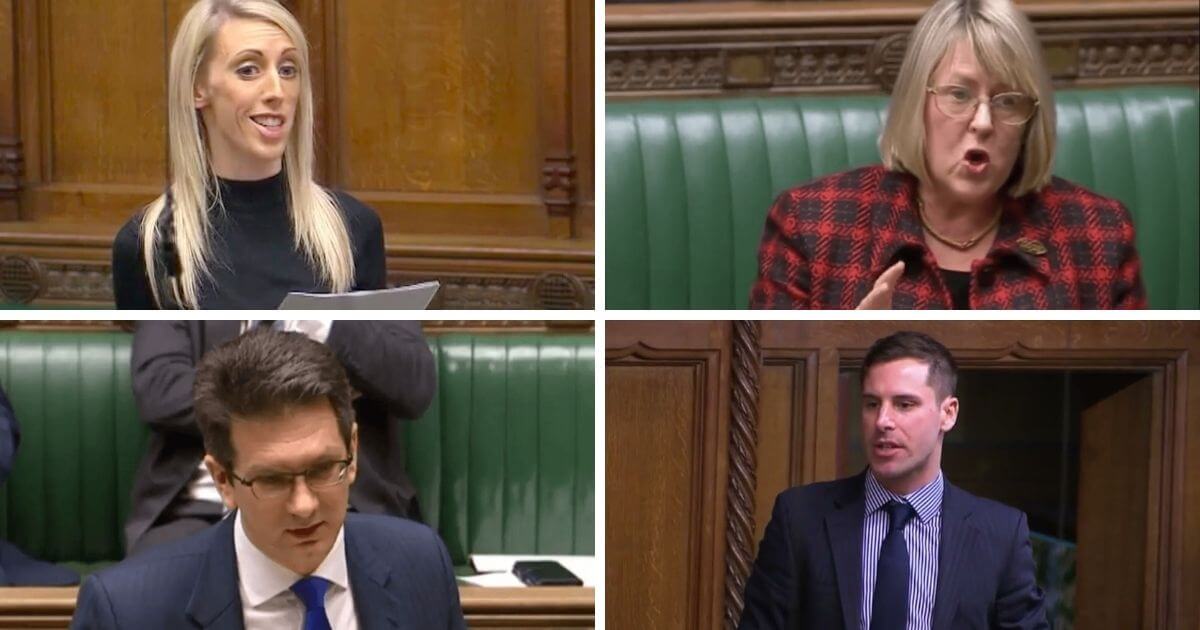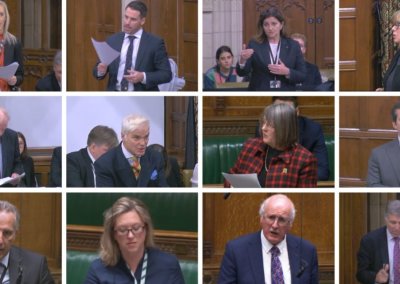There is growing pressure on the Government to end its temporary ‘DIY’ at-home abortion policy as MPs unite in lobbying against it.
The abortion provisions were introduced at the end of March 2020 and permitted abortions to take place entirely outside of a clinical setting for the first time. As the emergency COVID-19 legislation that introduced these changes is set to expire at the end of this March, MPs have taken to social media to speak in favour of this happening.
“…it should expire at the end of March as Ministers said that it would”
Influential Wycombe MP, Steve Baker, who is deputy chair of the COVID Recovery Group of Conservative MPs, addressed the legislation on Twitter writing: “Temp Covid regs for at home abortion pills will expire on 25 March. Ministers are right to let them expire; I’ve heard officials are resisting”.
Emphasising the dangers around ‘DIY’ abortion, and the lack of consideration the legislation has been given, Mr Baker went on to write: “There are serious implications to continuing at home abortion that need real consideration such as the coercion of vulnerable women”.
Mr Baker was joined on Twitter by Congleton MP and Co-chair of the All-Party Parliamentary Pro-Life Group, Fiona Bruce, who wrote: “Parliament returns from recess next week, and as the Government ends the emergency measures introduced at the beginning of the pandemic, it must revoke the temporary ‘at-home’ abortion policy which poses unacceptable risks to women’s health and safety”.
Highlighting the Government’s own words on the matter, she wrote: “The Government promised this would be a temporary, time-limited policy, and so it should expire at the end of March as Ministers said that it would”.
Blackpool South MP Scott Benton joined them, tweeting: “‘At-home’ abortion leaves women open to abuse through the lack of in-person consultation – it needs to end as originally promised by the end of March. It is essential that the Govt makes a decision to end the temporary decision to allow abortion pills to be taken at home”.
“Huge risks around coercion and abuse”
Carla Lockhart MP, also Co-Chair for the All-Party Parliamentary Pro-Life Group, similarly wrote of the many dangers of ‘DIY’ abortion in an opinion that was published this afternoon, stating “several reasons” the policy ought to be revoked.
She first mentioned the risk associated with the lack of medical certainty of the baby’s gestational age, stating: “As there is no legal requirement for medical certification of gestational age through ultrasound or in-person consultation, and no in-person medical supervision during the abortion, there is no guarantee over who takes the pills, when or where they are taken, or whether an adult is present given the risk of complications”.
Citing a Sky News documentary, she went on to highlight that “5% of women who have ‘at-home’ abortions will suffer complications that may need follow-up treatment or surgery, equating to around 96 women every week, or 14 women per day”, and that “studies show more complications from medical than surgical abortions” even though medical complications likely being underreported.
Lastly, Carla Lockhart, wrote of the “huge risks” around coercion and abuse, which given the lack of in-person medical oversight, means “here is no guarantee that a woman taking medical abortion pills is doing so out of her own free will, nor that she is fully informed of her options”.
More than 10,000 women had to receive hospital treatment following the use of medical abortion pills in England
A study emerged last year that suggested that more than 10,000 women had to receive hospital treatment following the use of medical abortion pills in England between April 2020 and September 2021.
Based on data collected from 85 Freedom of Information requests to NHS Trusts across England, the study suggests that more than 1 in 17 women who had a medical abortion over the 18-month period needed hospital treatment.
Last year, Dr Calum Miller, NHS doctor and research associate at the University of Oxford specialising in abortion policy, presented evidence of the dangers of ‘DIY’ home abortion to MPs, especially the problem of coercion and abuse facilitated by ‘DIY’ home abortions.
The lack of direct medical supervision is a significant threat to the substantial minority of women who undergo forced abortion in breach of their human rights, often as a result of sexual abuse.
Quoting several sources, Dr Miller noted that “abusers might be listening in on [telemedicine phone consultation] conversations” (New England Journal of Medicine); “Consultations, when possible, are offered online, which may introduce further barriers to accessing support” (UN Office of Drugs and Crime); and some women’s “living arrangements may not permit the privacy and confidentiality appropriate for patient care” (Journal of the American Medical Association).
Right To Life UK spokesperson, Catherine Robinson, said: “The fact that the Government hasn’t ended this policy yet is mind boggling. With masses of evidence proving that these ‘DIY’ abortion schemes are bad, both for women’s health and safety, not to mention their unborn babies, one cannot imagine why they wouldn’t”.
“It is time the Government called an end to this undemocratically instituted policy which, as Lord Kamall said last week, was “always intended to be a temporary measure”.”












